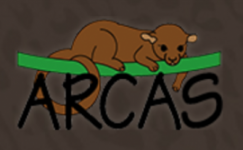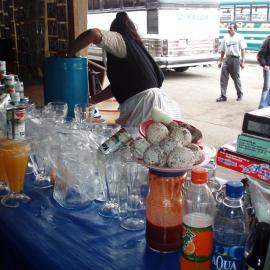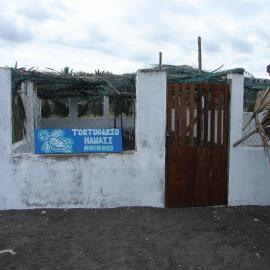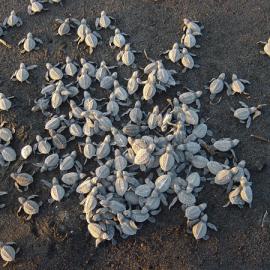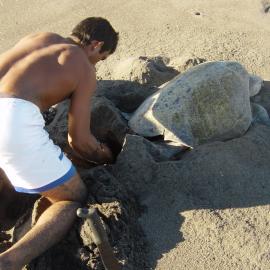The Hawaii Integrated Coastal Zone Management Project
Current initiative
Published
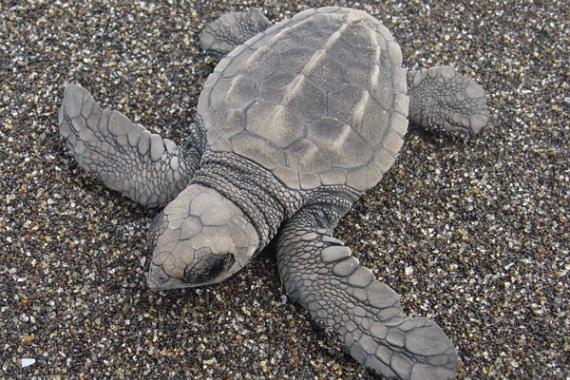
Turtle hatchling on the beach. Credit: ARCAS
Widespread community engagement in a scheme based on the sustainable harvesting of olive ridley sea turtle eggs in Guatemala has contributed to a conservation success story in spite of a lack of government resources and weak legislation.
Conservation of Sea Turtles in Guatemala is almost entirely dependent on an informal system of egg donation to a network of hatcheries. Eggs may only be taken from olive ridley turtle nests, and collectors must donate 20 per cent of their harvest to the hatcheries. Taking the eggs of all other species, and any adult turtles is banned.
In the context of high rates of poverty in coastal communities in Guatemala, turtle eggs are important for subsistence, and prized by locals as a supplement to their income and diets.
The poaching and wildlife trade problem
Species affected Green Sea Turtle Chelonia mydas , Leatherback Turtle Dermochelys coriacea , Olive Ridley Turtle Lepidochelys olivacea
Products in tradeSea turtle eggs
Overview of the problem
Under a sustainable use system initiated in the 1980’s, local residents are permitted to harvest olive ridley sea turtle eggs as long as they donate 20% of each nest to a hatchery. The harvesting of non-ridley eggs is prohibited, but this ban is not always adhered to and the government lacks the resources to fully enforce it. There is also a lack of understanding about the highly endangered status of leatherback sea turtles.
The anti-IWT initiative
Due to a lack of government resources, hatcheries have historically been operated in an uncoordinated fashion with a variety of community and private sector actors operating independently. Depending on the year, anywhere between 20 and 35 hatcheries operate on the Caribbean and Pacific coasts of Guatemala. The 20% donation system is largely voluntary. Though the donation system is decentralized and poorly regulated, its voluntary nature invites the participation of the private sector. Especially in the touristic zone of Monterrico-Hawaii, local hotels, NGOs and schools are supplementing the 20% conservation quota with purchased eggs and nests found on local beaches by volunteers and tourists. However, the harvesting of highly endangered, non-ridley eggs continues to be a challenge.
Inclusion of gender, age and ethnic groups
The project encourages the participation of women, youth and LGBT community members. ARCAS has worked to form women’s and youth groups and has organized gender workshops.
The strategy
Strengthening disincentives for illegal behaviour
Increasing incentives for wildlife stewardship
Sustainable harvesting of olive ridley sea turtle eggs in Guatemala has contributed to a conservation success story in spite of a lack of government resources and weak legislation.
Eggs may only be taken from olive ridley turtle nests, and collectors must donate 20 per cent of their harvest to the hatcheries. Taking the eggs of all other species, and any adult turtles is banned. Under the project, egg collectors who donate are given a receipt which gives them the right to sell and transport the rest of the nest.
Donated eggs are then buried in hatcheries and after a 45–55 day incubation period, the hatchlings are released into the sea.
As the ability to continue harvesting the eggs is important to them, local communities assist in enforcing the sea turtle egg donation system.
Increasing livelihoods that are not related to wildlife
ARCAS works in alternative livelihoods development, including ecotourism, handicrafts, apiculture, etc
Build/and or support sense of community ownership or stewardship
Further detailThe olive ridley egg donation is largely voluntary and depends on the cooperation of local egg collectors and buyers.
Improving education and awareness
Further detailARCAS carries out a variety of educational activities, including presentations in local schools, hatchling releases, training workshops, beach clean ups and field trips.
Has the initiative made a difference?
Please see the Situational Analysis on the ARCAS website: https://arcasguatemala.org/who-we-are/arcas-publications/ According to this analysis:
• The overall population trend of the olive ridley sea turtle (Lepidochelys olivácea) on the Pacific coast of Guatemala is increasing. Our nesting crawl count program has documented that the nesting density in the 8kms of monitoring at the Hawaii site has increased from 906 crawls in 2003 to 1,422 crawls in 2019.
• At the national level, the numbers of eggs rescued and incubated per year have increased from 46,000 in 2003 to 598,653 in 2019. This increase is largely due to the purchase of eggs by the private sector (hotels, ecotourists, vacation home owners…). In 2019, 59% of all rescued eggs were bought or exchanged for food aid while only 29% were delivered to 31 hatcheries as part of the 20% conservation quota.
What works and why
On the practical, field-level, given the lack of central government resources, it is MUCH more effective and economically feasible to work with local communities using monetary and cultural incentives than to focus entirely on punitive measures.
Factors for success
Sufficient time investment in building relationships and trust between the initiative and local communities
Devolved decision-making power so local communities have a voice in creating or co-creating solutions (as part of the initiative)
Transparent and accountable distribution of benefits to local communities
Clear and tangible benefits to local communities from wildlife (These may be financial and/or non-financial)
What doesn’t work and why
The threat continues from outside the project area, in the open ocean, where sea turtles are being drowned by shrimp trawlers and other industrial fishermen.
Factors that limited or hindered success
Lack of supportive national policy/legislation on sustainable use of natural resources
Lack of long-term donor support that is flexible, adaptive and/or based on realistic time goals
Ineffective and/or untrustworthy community leaders
Organisers, donors and partners
Wildlife Rescue and Conservation Association (Lead)
Columbus Zoo
US Fish and Wildlife Service
Idea Wild
See Turtle
USAID
Palo Alto Rotary Club
For further information contact Colum Muccio (colum_muccio@hotmail.com).
